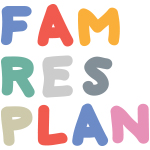Edukacijsko-rehabilitacijski
fakultet Sveučilišta u Zagrebu
[ Specifična obilježja
obitelji u riziku: doprinos planiranju
kompleksnih intervencija ]
Sudjelovanje na međunarodnoj konferenciji EUSARF-a na Sveučilištu u Oviedu u Španjolskoj, 13.-17.9.2016.
Nedjelja, 18. rujna, 2016.
Članica projektnog tima, doc. dr. sc. Ivana Jeđud Borić u razdoblju od 13. do 17. rujna 2016. sudjelovala je na XIV. EUSARF (European Scientific Association on Residential & Family Care for Children and Adolescents) međunarodnoj konferenciji, na Sveučilištu u Oviedu u Španjolskoj. Konferencija je značajna budući da okuplja znanstvenike koji se bave istraživanjima s populacijama u riziku- od djece do odraslih. U radu konferencije sudjelovalo je preko 400 znanstvenika i stručnjaka primarno iz Europe, ali i šire (npr. SAD, Kanada).
Jedna od tema koje su bile u fokusu odnosila se na istraživanje obitelji te aktivnog uključivanje obitelji u provođenje intervencija. Na konferenciji su sudjelovali i mladi, korisnici raznih oblika intervencija koji su izlagali o svojim istraživačkim iskustvima.
Uz to, doc.dr.sc. Jeđud Borić tijekom konferencije sudjelovala u radu simpozija koji su se bavili metodološkim pristupima istraživanju u području populacija u riziku. Specifičnije, riječ je o sljedećim simpozijima s pripadajućim izlaganjima:
Translational Research: A collaborative model for practitioners and researchers
• Implications of Translational Research for the field of Residential Child Care
Deborah Sellers (Cornell University), Michael Nunno (Cornell University)
• Agency and university partnership to analyze restraints levels and psychotropic medication usage after the CARE program implementation
William Martin (Waterford Country School), Susan Sullivan (Waterford Country School)
• From flirtation to inspirational translational partnership: Lessons learned from the Dutch Stronger Together program
Hubert M Pijnenburg (HAN University of Applied Sciences / Radboud University Nijmegen)
• Academic workplace: Lessons learned from state funded collaboration between clinical practice, research, education, and policy
Ron H.J. Scholte (Radboud University Nijmegen)
• Translating practice into theory into practice (et cetera): A powerful cycle for change
Jim Anglin (School of Child and Youth Care, University of Victoria)
Theoretical and Qualitative Approaches
• How to do research in the real world: What is to know and who is to gain?
Anne Marie Villumsen (VIA University College)
• Social pedagogy in children´s everyday life – supporting agency
Ida Schwartz (University College Lillebaelt, Centre for Applied Welfare Research)
• Selective quantitative writing on ADHD genetics in study books: a critical analysis
Sanne Te Meerman (University of Groningen), Laura Batstra (University of Groningen), Rink Hoekstra (University of Groningen, the Netherlands), Hans Grietens (University of Groningen)
• Perspectives on continuity of care of ‘hard-to-reach’ youngsters in vulnerable living conditions
Jan Naert (Ghent University)
• What transition concept is useful in the field of leaving care? A reflection on research interest and implication of language
Jan Storø (Oslo and Akershus University)
New Methodological Approaches
• The dialogical-systemic case laboratory – a method for the analysis of serious or fatal cases in child protection
Kay Biesel (University of Applied Sciences and Arts Northwestern Switzerland), Reinhart Wolff (Kronberger Kreis für Dialogische Qualitätsentwicklung e.V. / Free University Berlin)
• Using Social Network Analysis to compare traditional approaches to working with adolescents in and on the edge of care with a new multi-disciplinary model
Katie Hollingworth (Institute of Education, University College London), Emily Munro (University of Bedfordshire)
• Research in daily practice (how we) just do it!
Marc Dinkgreve (Youth Protection Amsterdam), Sigrid Van De Poel (Youth Protection Amsterdam), Inge Busschers (Youth Protection Amsterdam), Barbara Regeer (Free University of Amsterdam)
• The prevalence and characteristics of children growing up in kinship care in the UK: An analyses of the Census 2011 microdata
Dinithi Wijedasa (University of Bristol, Hadley Centre for Adoption and Foster Care Studies)
Connecting Evidence, Research and Practice
• Connecting research and evidence in child welfare practice
Patricia chamberlain (Oregon Social Learning Centre)
• Implementation of evidence based programs in Child Protection Services in Gipuzkoa (Spain)
Joaquín De Paúl (University of Basque Country)
• Help, I need somebody; help, not just anybody; help, you know I need someone; help…! About child and family services research that we could learn from
Erik J. Knorth (University of Groningen)
Children and Young People Voices
• The power issue on the negotiation process of discharge – perceptions of children in care, caregivers and social workers
Mooly Wong (The Chinese University of Hong Kong)
• The «collective listening» as a tool for the emergence of the voice of the children in out-of-home care
Silvio Premoli (Catholic University of the Sacred Heart, Milan), Valerio Belotti (Università degli Studi di Padova)
• Outcomes in Kinship Care in Western Australia: what young people say
Murray Davies (The Viewpoint Organisation), Judith Garsed (Department for Child Protection and Family Support)
• Working with Foster Care and the use of Family Group Conferences. Children and adolescent`s experiences.
Anne-Kari Johnsen (The Arctic University of Norway, Regional Centre for Child and Youth Mental Health and Child Welfare), Astrid Strandbu (The Arctic University of Norway, Regional Centre for Child and Youth Mental Health and Child Welfare)
U okviru konferencije susrela se i s konzultantima na projektu FamResPlan, prof. Ingrid Hojer i prof. Jorge de la Valle, sa svrhom izvještavanja o iskustvima provedbe pilot istraživanja te planiranja daljnjih aktivnosti.
U okviru konferencije susrele se i ostvarila kontakte i dogovore s prof. Jimom Anglinom (ekspert u području skrbi o djeci i kvalitativne metodologije, University of Victoria, Kanada) te prof. Hansom Grietensom (stručnjakom u području skrbi o djeci, University of Groningen, Nizozemska).

